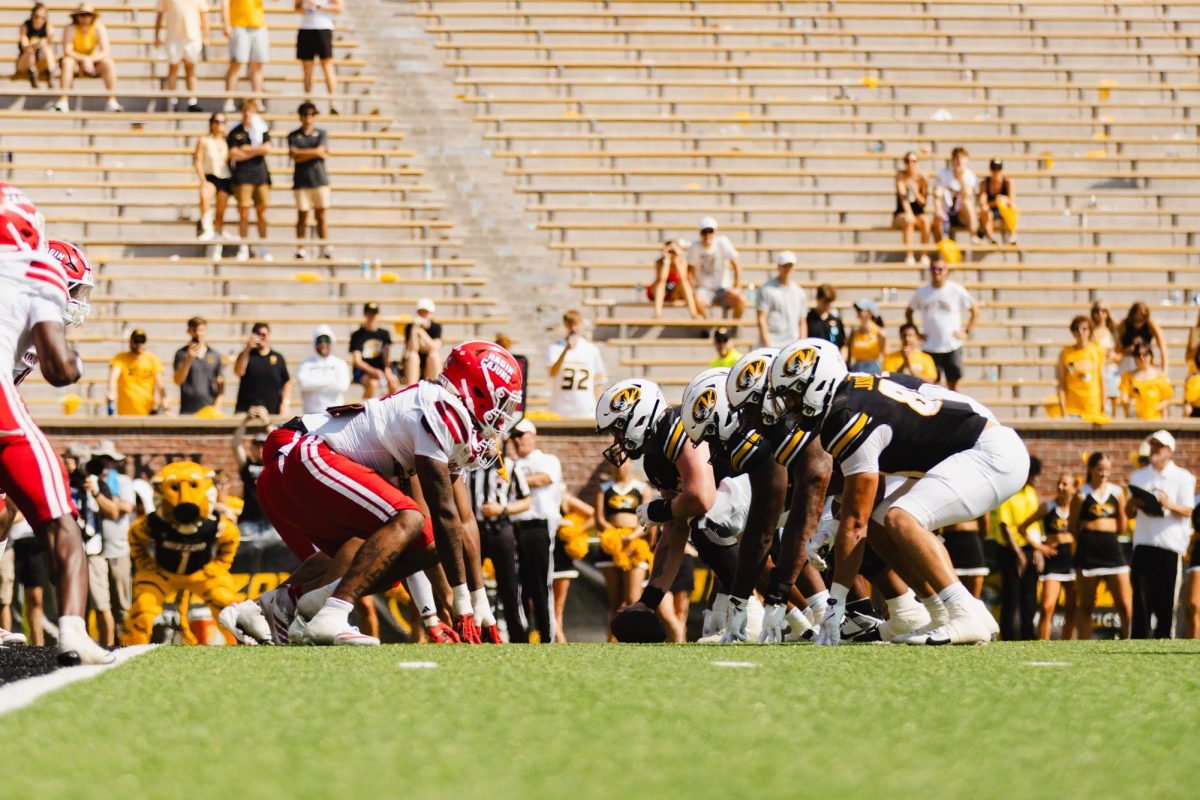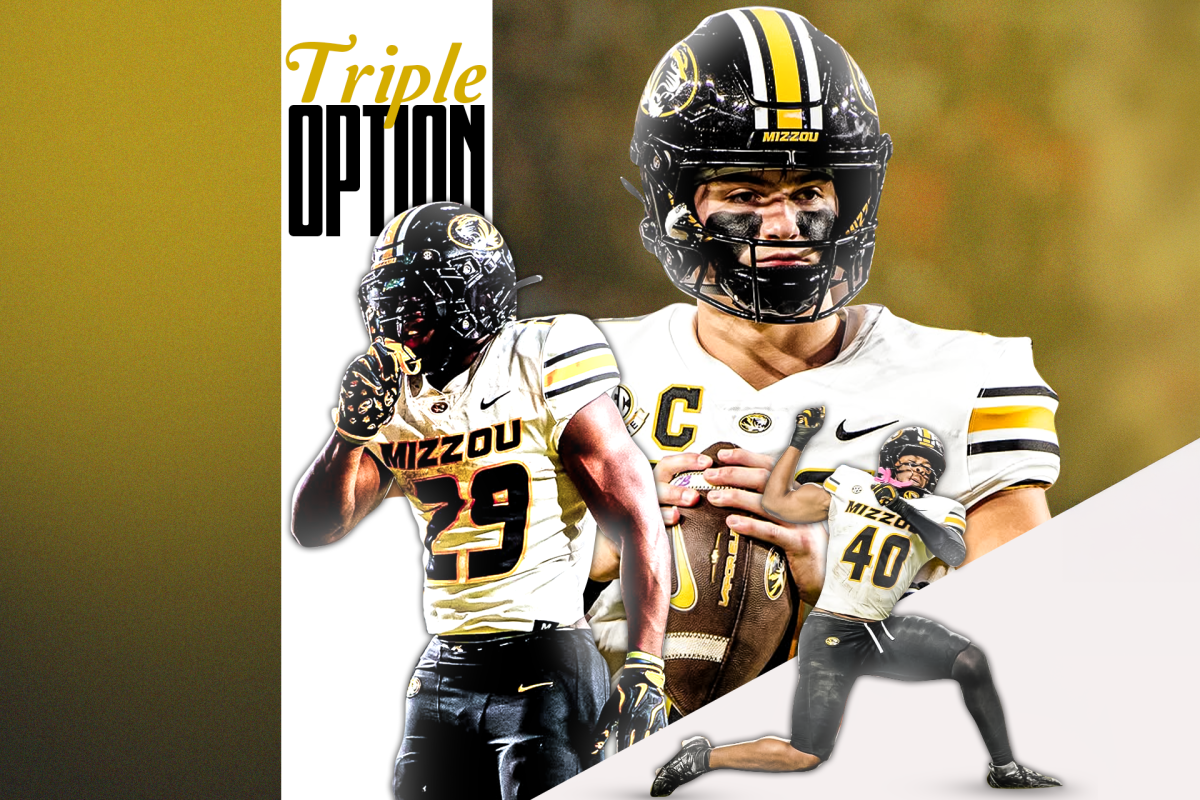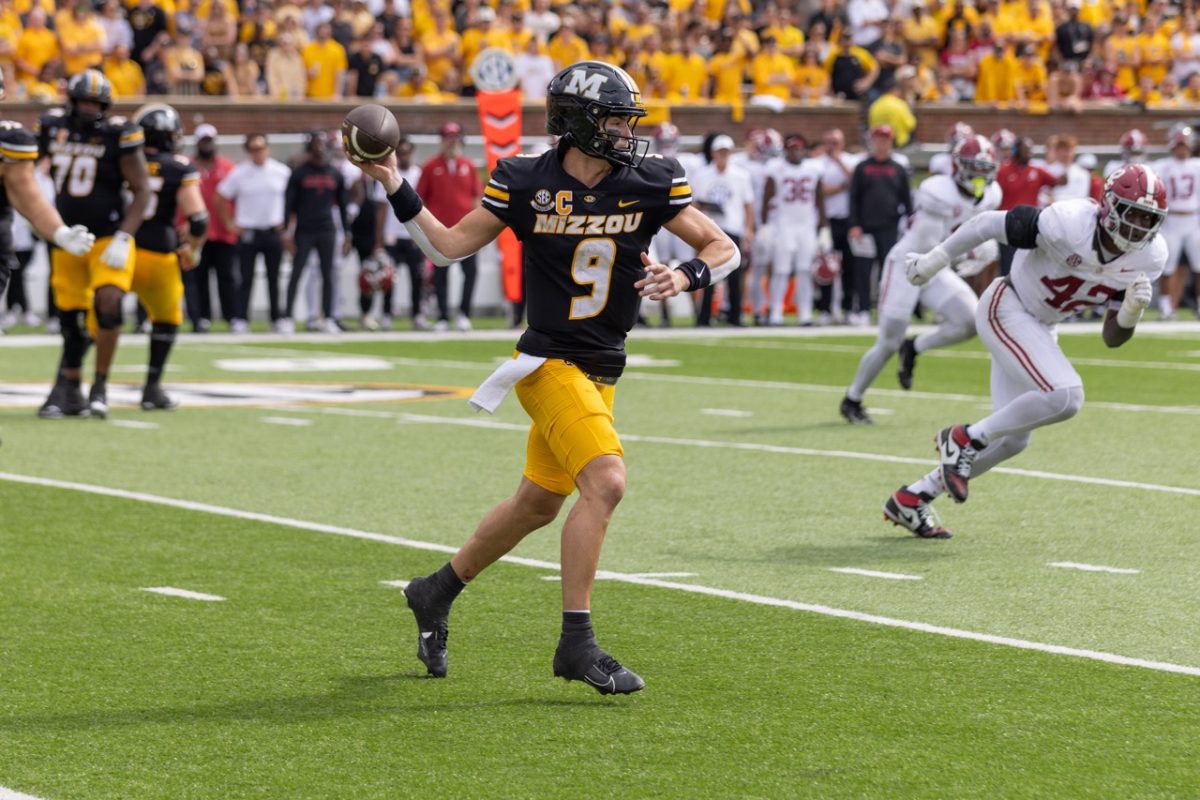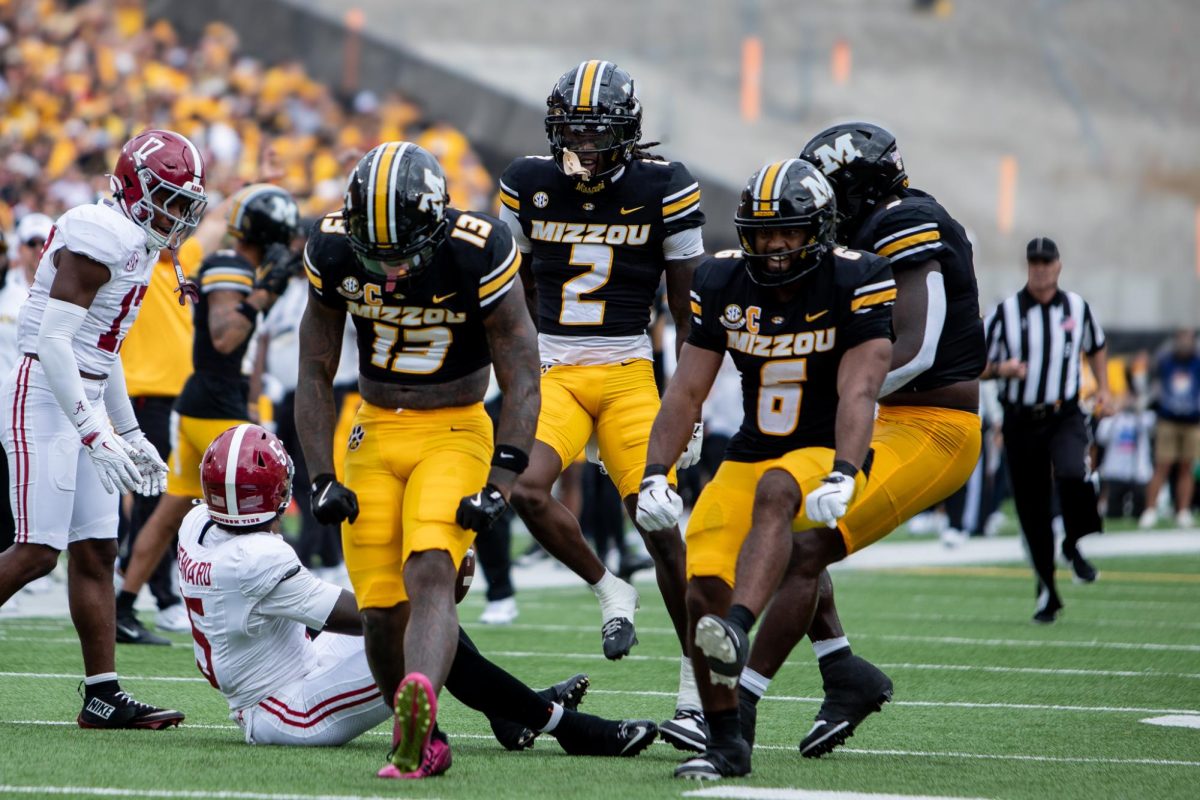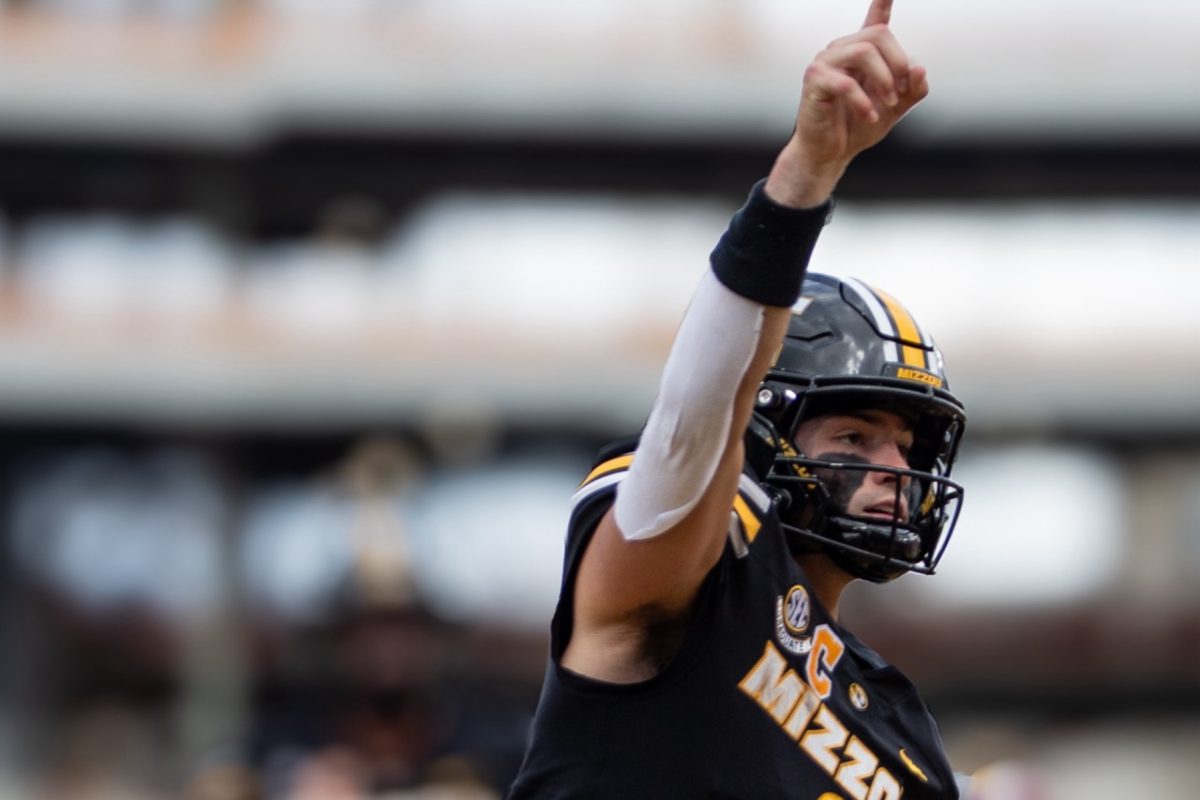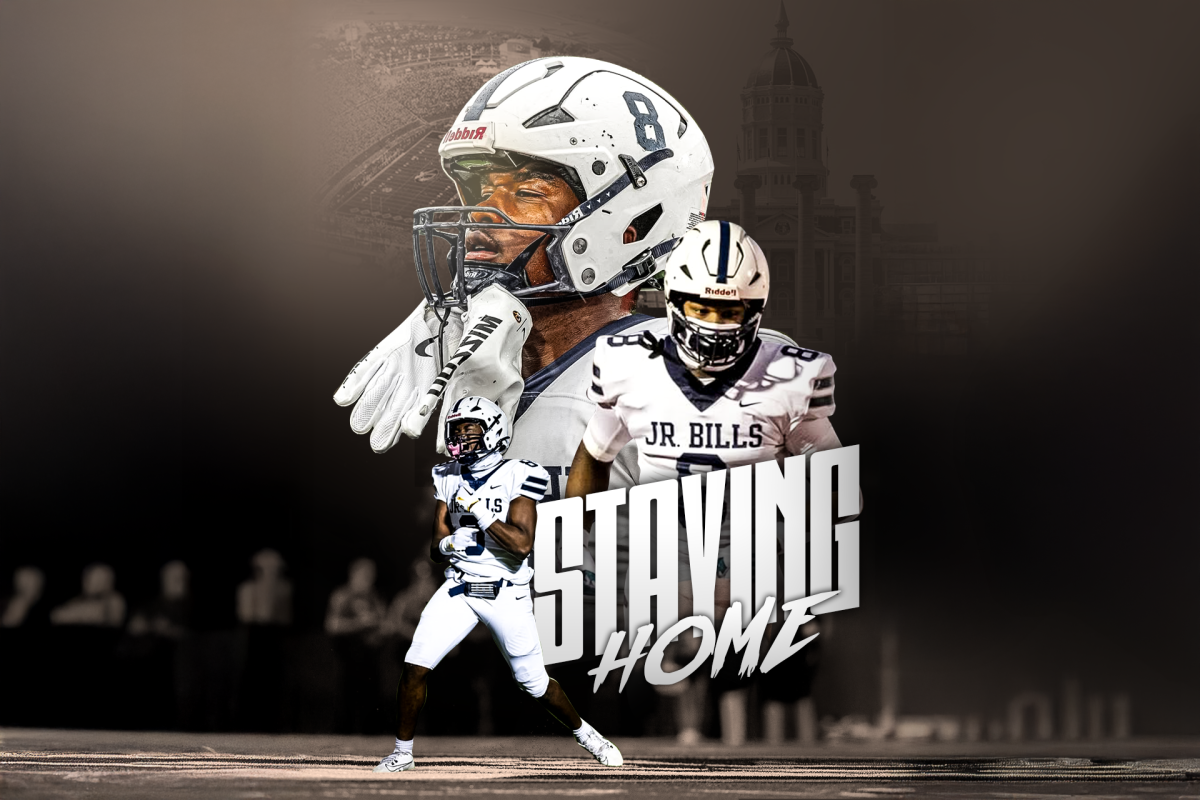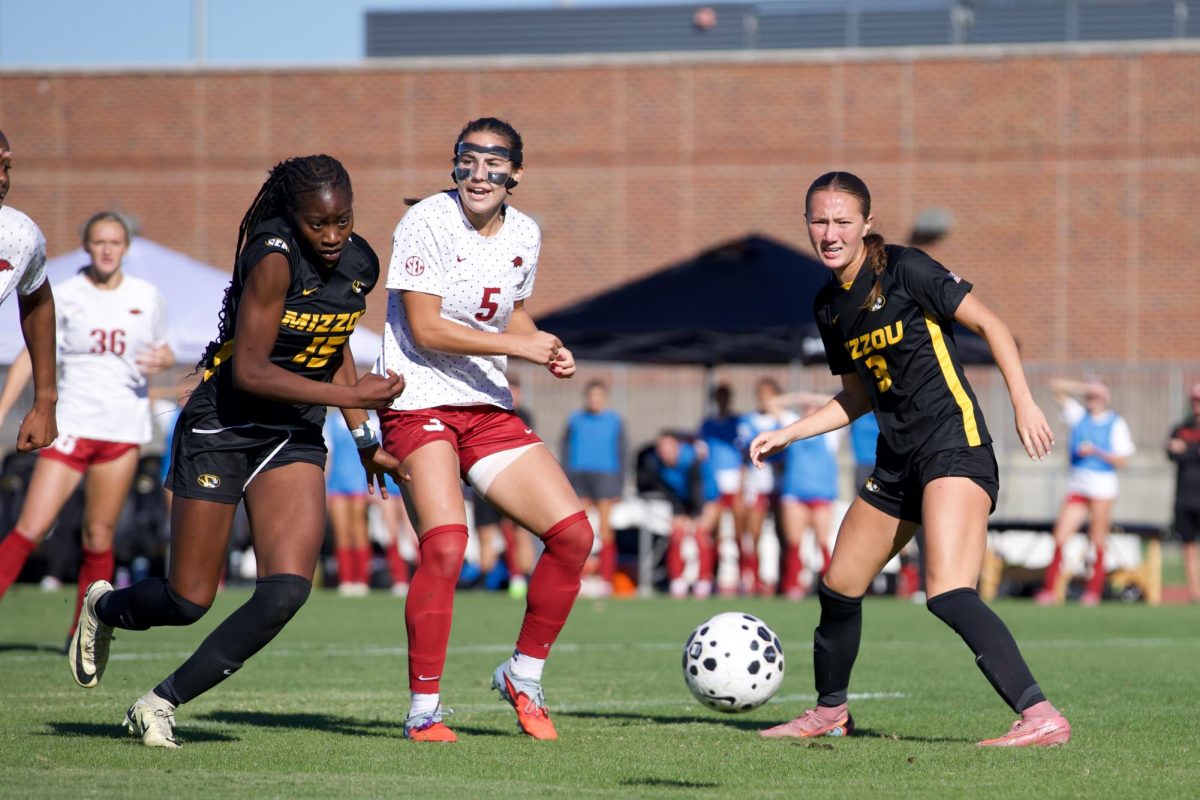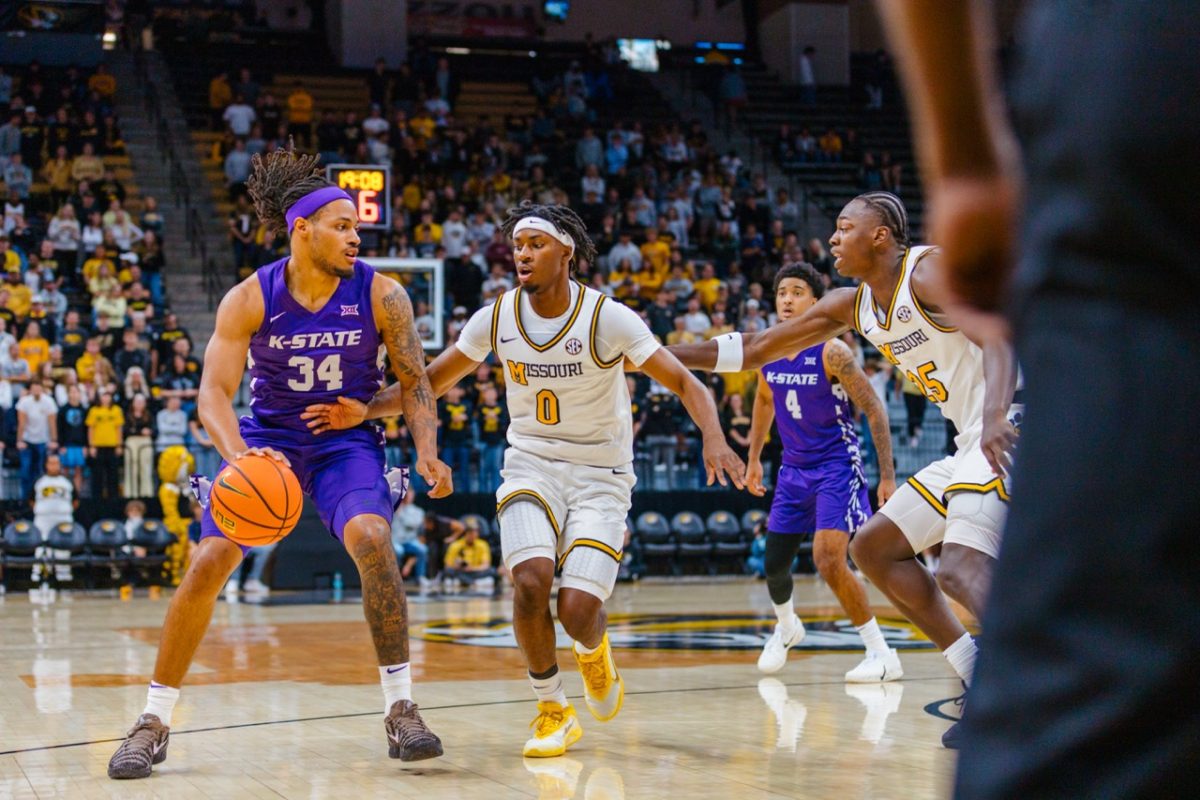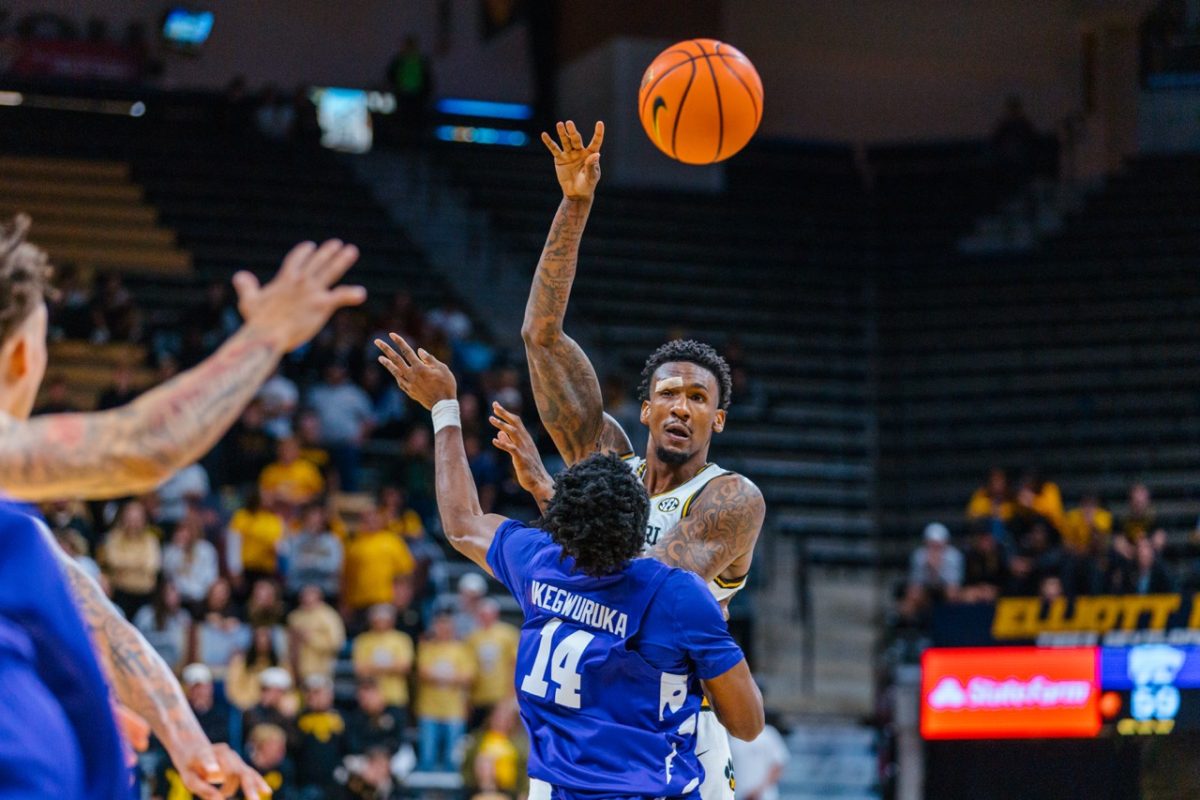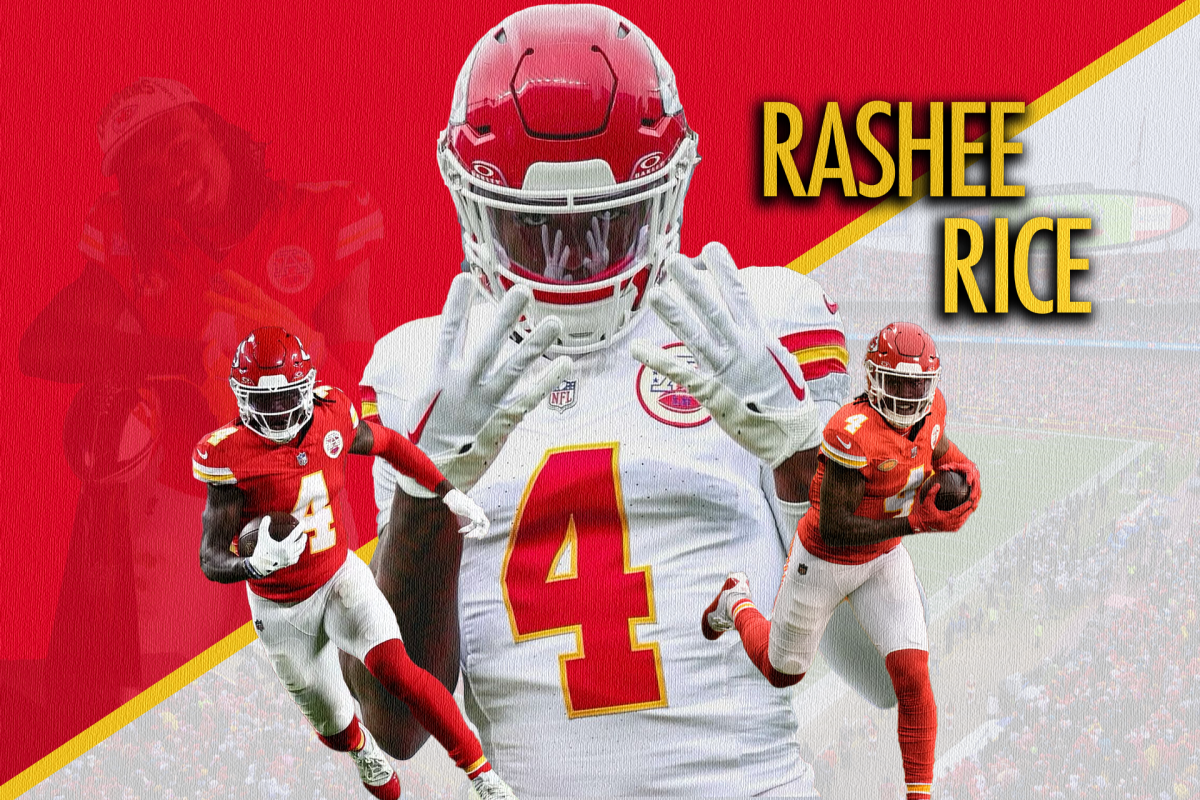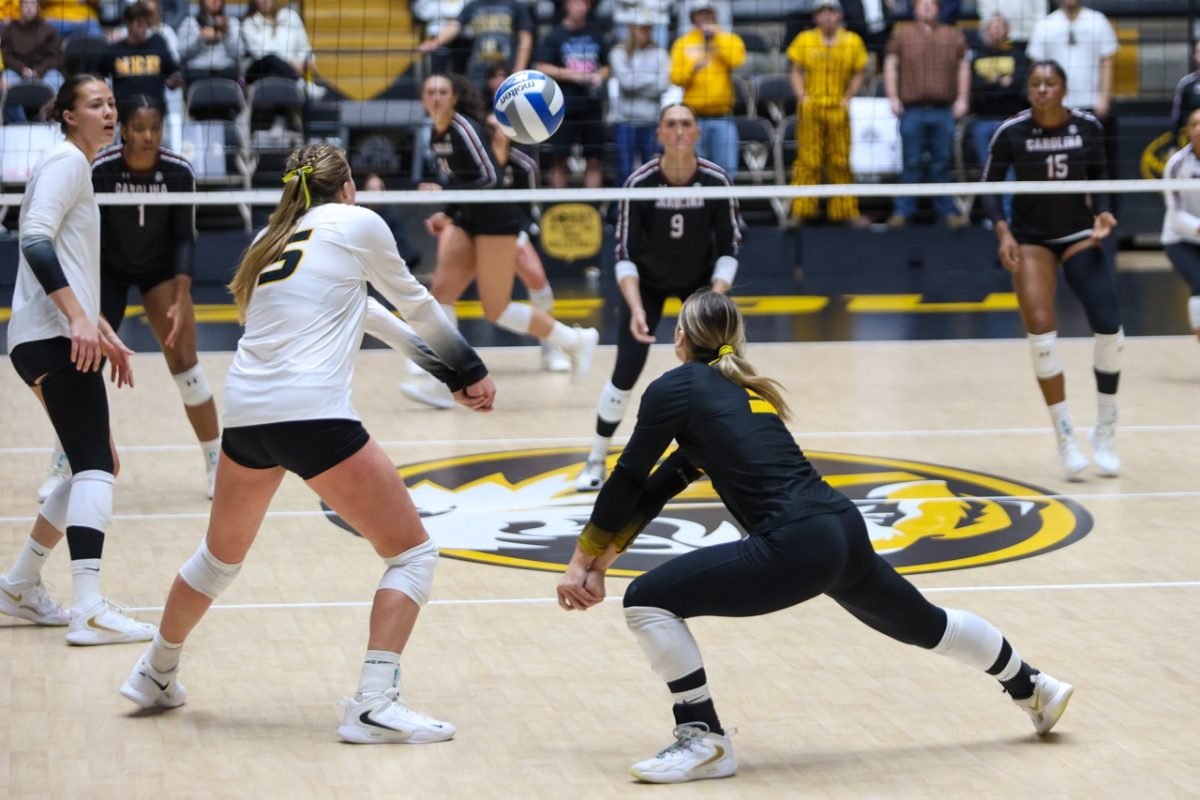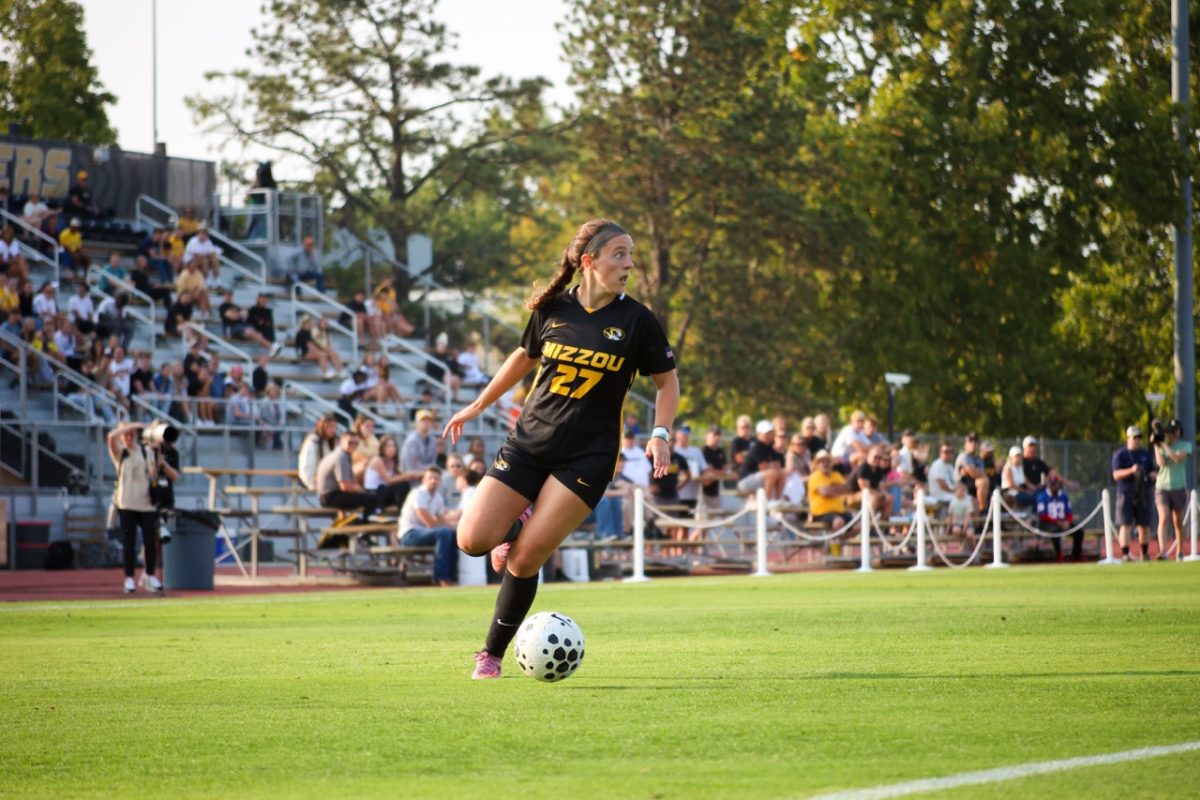When Charles “Peanut” Tillman, former All-Pro cornerback for the Chicago Bears, talks about new Missouri defensive coordinator Steve Wilks, the first thing he brings up is his daughter.
“I learned a lot from him during a difficult time in my life with my daughter, Tiana,” Tillman said.
Doctors diagnosed Tiana with a form of cardiomyopathy in the 2008 offseason while Wilks was the Bears’ defensive backs coach, which would eventually require a heart transplant. Tiana recovered, and to this day, Tillman remembers how not only Wilks but his family, too, showed empathy throughout a terrifying time in his life.
“I learned a lot about who my real friends were,” Tillman said. “Physically, he couldn’t do anything to change the situation, but he could listen, and he was there for that, and I am forever grateful for that. Forever grateful for that.”
Tillman played in Chicago for 12 seasons, including three under Wilks, from 2006 to 2008. When his contract expired after the 2014 season, with the Bears coming off a 5-11 disaster and with a clear rebuild ahead in Chicago, he knew just where to go.
Tillman signed a one-year deal with the Carolina Panthers, where Wilks coached defensive backs and had just been named assistant head coach at the time.
“Everybody in our room, whether it was Carolina or Chicago, we wanted to play for Steve Wilks,” Tillman said. “To me, that’s the greatest compliment ever.”
***
Wilks entered a defensive-back room in Chicago that included an All-Pro in veteran safety Mike Brown and two entrenched starters at corner: Tillman and Nathan Vasher, who intercepted eight passes on his way to a Pro Bowl appearance the season before Wilks arrived.
“He is an unbelievable leader of men,” Vasher said. “A great coach, a mentor for me.”
Even as someone who had never coached in the NFL before, Wilks found it easy to establish himself in that room.
“I think he established himself just by being one of the guys,” Tillman said. “He was a players’ coach first. … He’s a great storyteller. And he relates his stories the night before a game, and he somehow weaves it into a motivational talk that carries onto the field. He’s a master at that.”
In Carolina, Wilks left an equally impressive first impression on safety Roman Harper, who had signed with the team in 2014 after a successful eight-year tenure with the New Orleans Saints.
Unlike Tillman, Harper knew nothing about Wilks at the time he signed. But when he and his wife, then-fiance, went to meet Wilks for the first time, they were blown away.
“All I could think about was, once we left that meeting, he was the smoothest dude,” Harper said. “So confident, like walks in, gonna be dressed nice, looking good, smelling good, that’s his thing. And my wife was like, ‘I just can’t stop thinking, like, he reminds me of Denzel Washington.’
“If you wanna think of any person you can compare him to, that’s who it is,” Harper said.
Harper came to Carolina as a veteran player and Wilks responded accordingly. He asked Harper to be another voice in the defensive-back room because he understood that if Harper bought in, the younger players in the room would as well.
Wilks also understood that each player learned differently, so he adjusted his coaching style to each player. He wasn’t going to coach Harper — who had played for eight years and made multiple Pro Bowls — the same way he coached Josh Norman, who emerged under Wilks as one of the league’s better corners and “became J-No” with an All-Pro nod in 2015.
“I gotta be able to feed this one,” Harper said. “I gotta be able to hug and love on this one. I gotta be able to yell at this one. I gotta be able to cuss at this one. I gotta be able to talk very nicely to this one.”
Wilks coached Norman with the same respect with which he coached Harper, just in a different way.
Above all, Wilks understood that coaching is a two-way street — if he’s calling a play and his players aren’t comfortable with it, for example, he’ll adjust, as opposed to forcing a call to the point where it’s detrimental to the team.
“That’s what leads to a good coach and a good relationship between players,” Harper said. “And the best coaches understand that because the players are the ones playing the game.”
Back in Chicago, Wilks impressed his players with his consistency. The 2006 Bears reached the Super Bowl, but even down the stretch of that season, his coaching style didn’t change.
“It’s the same,” Vasher said. “It’s always the same. It doesn’t matter if it’s the Super Bowl or if it’s a regular, or preseason game. His approach is always to improve and to push yourself to be a professional and to take your game to the next level.”
He impressed Tillman — a Walter Payton Man of the Year himself — with his genuineness from day one.
Like Harper, even as a younger player, Tillman found himself treated like a grown man. Wilks wasn’t needlessly intense and didn’t lose his temper when the situation didn’t call for it. Because the players knew that and that trust had been built up, when Wilks did show his fiery side, they paid attention and took it seriously.
“When he gets mad at you, it’s like letting your dad down, letting your big brother down,” Tillman said. “You feel disappointment within yourself, and all you wanna do is make up for that, so you want to please your coach. You want them to be happy with your production and your performance. That was how I felt.”
To Tillman, that’s a hallmark of good coaching, and in a broader sense, being a good person. And because Wilks had that buy-in, he was able to preach life lessons that stuck with players, as opposed to life lessons that players tuned out.
“He would give this stat, you know, there’s 200,000 and so and so seconds in a day,” Tillman said. “Life’s most precious gift is time. It’s something you can’t get back. Something you can’t make up. And he used to always tell us the value of time. Don’t take it for granted.”
***
Missouri coach Eli Drinkwitz went into his defensive coordinator search with a few priorities. A man of character with a strong defensive mind, obviously. A great communicator, sure. And it certainly wouldn’t hurt if they had experience as a head coach, either.
Oh, and turnovers. Turnovers, turnovers, turnovers.
“We’re going to start calling it ‘ball disruption,’” Drinkwitz said.
Wilks spent the better part of a decade and a half preaching ball disruption, beginning in 2006 with the Bears. The Bears’ head coach at the time, Lovie Smith, made his name by leading the league in takeaways per game twice during his tenure — including 2006 — and only finishing outside the top 10 twice as well.
“One hundred percent,” Drinkwitz said. “That was absolutely something that has always been a part of what coach Wilks’ defensive identity has been.”
The main reason those defenses — as well as Ron Rivera’s Panthers, who led the league in the NFC Champion season of 2015 with Wilks on staff — took the ball away so frequently is the mindset that takeaways are not accidents.
“It was something we all talked about,” Tillman said. “Takeaways, takeaways, takeaways. They don’t just happen. You have to go get them. You have to force them. You have to make that happen.”
Anyone who played or plays under a coach from that background, which dates back to Tony Dungy’s ferocious Tampa Bay Buccaneers defenses of the late 1990s, will tell you that takeaways were preached, taught and drilled more than almost anything else.
“Just playing the ball in flight, and coming down with it, just having the confidence to get your eyes back and find the flight of the ball,” Vasher said. “It was an awesome experience to have him there, and he explained that to me as still being a young defensive back, and it truly took my game to the next level.”
The philosophy even trickles down to the word itself, as Drinkwitz referenced above.
“We called them takeaways,” Vasher said. “I think it’s a mindset going into it. So if you’re saying, ‘Takeaway,’ that means we’re deliberately going in there, we’re gonna rip and rake at the ball.”
That mindset was “embedded” into everyone who entered Halas Hall, where the Bears practice, from day one.
“Whether you were a new coach, new player or free agent,” Tillman said. “You knew the word ‘takeaway’ on defense.”
Before injuries derailed his career, Vasher was an interception machine, hauling in 18 picks in his first three seasons. And Tillman, of course, knows a thing or two about taking the ball away.
If you’re watching a football game on TV and someone punches the ball out of the ball carrier’s grasp, you may hear the announcers call it a “Peanut Punch.” They’re referring to the technique that Tillman popularized and used to force 44 fumbles in his career. That’s good for sixth in NFL history and first out of non-pass rushers.
Did Wilks have a hand — or fist — in teaching Tillman how to do that?
“Naw,” Tillman said, laughing. He developed the technique in college. “I think he just let me do my own thing with that. He just was like, ‘Hey, Peanut, just do you. You got the punch thing, like, you just do you. We’re all gonna learn from you, and we’re all gonna watch you.’”
Forcing the fumble is only half the equation, though. Someone has to pick it up. In 2013, the Bears missed the playoffs in large part because during their division-deciding season finale against Green Bay, a Packers fumble lay on the ground and no one on the Bears had the wherewithal to pick it up. The play ended in a Packers touchdown.
After the game, the prevailing thought about that play was that if someone like Smith (who the Bears fired after the 2012 season), Rivera or Wilks was in charge, it would not have happened.
“[We were taught that] you gotta be ready for it when it happens,” Harper said. “Because so often, you get balls on the ground and the defense doesn’t recover it.”
When Tillman arrived in Carolina in 2015, Wilks started to tell the other defensive players to look for the football at the end of the play even more.
“When Wilks got there, he was telling us as Peanut was there before we ever practiced,” Harper said. “He said, ‘Look, just make sure you keep running to the ball because for some reason this guy’s always gonna punch the ball out. I don’t know, I’ve been around him long enough, it’s just gonna happen. So you gotta be running to the ball at all times.’”
Harper also noted that takeaways can be contagious, or “infectious,” as he put it. When one player goes after the ball, the rest think, “Hey, this looks fun,” and they start doing it, too.
“That type of energy is not only taught, but it spreads,” Harper said. “It’s a good thing to have for your defense.”
***
After 15 years in the NFL, Wilks will make the transition back to the college game. It’s a game that, of course, has changed since 2005, when he was last in it.
Wilks had to make one major adjustment right away: he had to create a Twitter account because social media is crucial for recruiting. For reference, the last time Wilks coached in college, Twitter was a little over seven months from existing.
His new handle: @ScoreonD.
“I like it,” Harper said. “Sometimes, man, that’s what you gotta do. You gotta score on defense to get the offense going. Get the whole team going, really.”
Harper, currently an analyst for SEC Network, believes that Wilks’ style of coaching will translate well to combat the high-flying SEC offenses that we saw in 2020.
“It’s not about shutting teams out anymore,” Harper said. “All the rules are based upon giving the offense an advantage, so now it’s about limiting their opportunities and being successful about it, so being able to teach these young men how to execute defenses is what you can really win on schematically, and I think coach Wilks will bring that to Missouri.”
Vasher has returned to the college game as well, and he’ll be entering his third year as a defensive analyst for Texas, his alma mater. He doesn’t see an issue with Wilks’ coaching style re-entering college football either.
“I think it’ll still be good,” Vasher said. “I don’t see any reason why it wouldn’t be. I mean, he’s still one of the great innovators of defense, one of the great teachers that are out there. Those guys at Mizzou got an awesome, awesome coach. They’re lucky to have him.”
As for Tillman, he’s excited for his former defensive backs coach, and he said if it wasn’t for COVID, he’d be making plans to visit Columbia to watch Wilks’ Tigers.
“Mizzou, you’re getting one hell of a coach,” Tillman said. “I’m jealous.”
_Edited by Kyle Pinnell | [email protected]_


